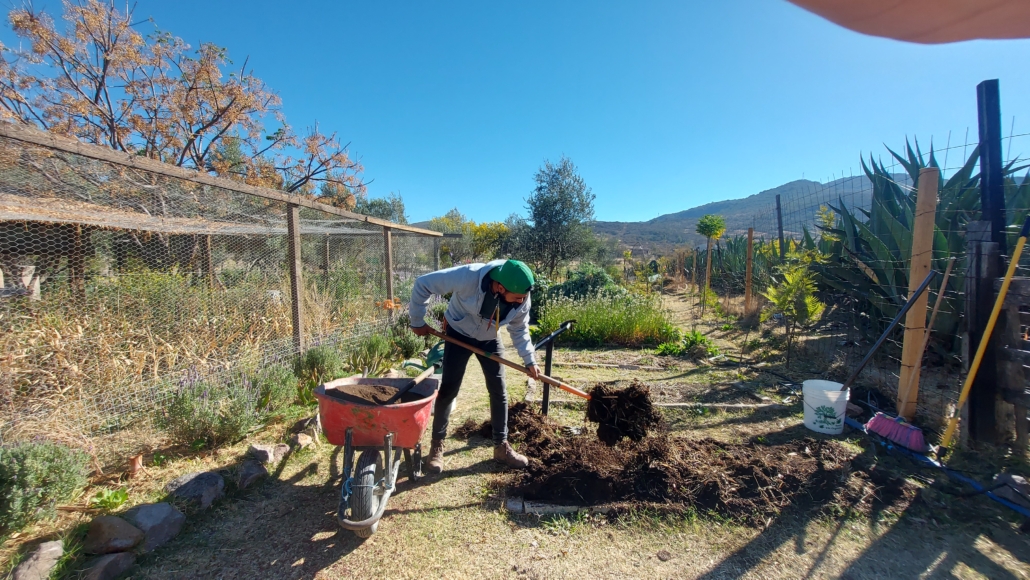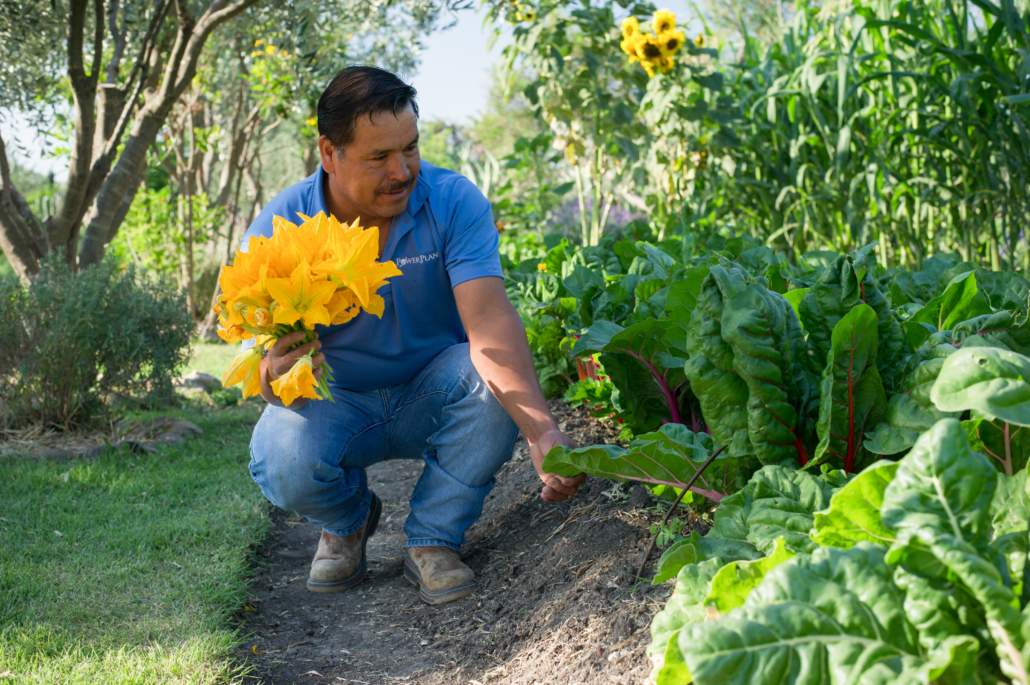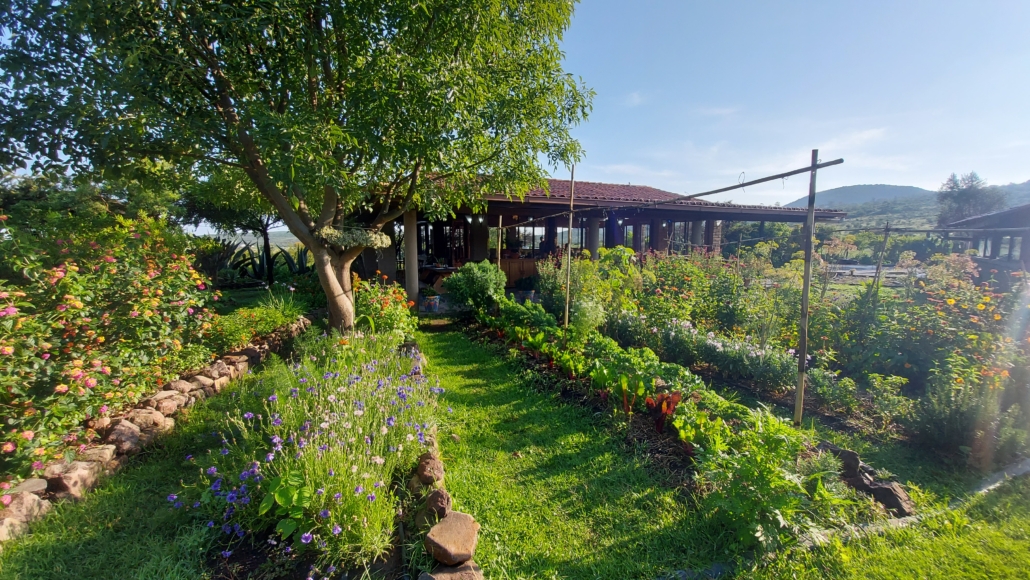There are claims that there is no clear definition of Regenerative Agriculture.
Regeneration International started the worldwide regenerative movement in 2015. We have published our definition many times. We are the oldest and most significant of all the inclusive regenerative agriculture movements working on all 6 arable continents on our planet. Consequently, we state with authority that our definition is the primary one.

By definition:
Regenerative systems improve the environment, soil, plants, animal welfare, health, and communities.
The opposite of Regenerative is Degenerative
This is an essential distinction in determining practices that are not regenerative.
Agricultural systems that use Degenerative Practices and inputs that damage the environment, soil, health, genes, and communities and involve animal cruelty are not regenerative.
The use of synthetic toxic pesticides, synthetic water-soluble fertilizers, genetically modified organisms, confined animal feeding operations, exploitive marketing and wage systems, destructive tillage systems, and the clearing of high-value ecosystems are examples of degenerative practices.
Such systems must be called degenerative agriculture to stop greenwashing and hijacking.
Regeneration International asserts that to heal our planet, all agricultural systems should be regenerative, organic, and based on the science of agroecology.
Different Definitions
Other organizations have put out different definitions of regenerative agriculture. These tend to be narrower than ours; however, most do not contradict our definition. They are equivalent.
It is the same with organic agriculture, with multiple definitions such as the USDA, the EU, the United Nations Codex Alimentarius, IFOAM – Organics International, over 100 national definitions, and numerous definitions in private standards. They are different. However, most do not tend to contradict each other. They are considered equivalent.
Significant contradictions exist in the numerous national and international organic standards and certification systems, resulting in inconsistencies so that most standards and certification systems are not considered equivalent.
Some of the examples are:
- Europe allows antibiotic use in animals, whereas the USA and Australia prohibit it.
- The USDA organic regulation permits carcinogenic nitrates as preservatives in processed meat, which is prohibited in most other countries.
- The USDA allows hydroponics, which is prohibited by most standards and considered by many as the opposite of true organic agriculture. However, this is changing with other countries following the USDA’s lead and permitting hydroponics.
- The European regulation encourages confined animal systems to the point that it wouldn’t give equivalence to organic animal products from Australia because their organic producers care for their animals on pasture.
- European, USDA and Australian standards allow for very small pesticide residue levels, whereas many Asian organic standards prohibit any residue levels.
Many countries permit participatory guarantee systems (PGS) as a way to ensure fairness for small producers. PGS systems are based on farmers peer reviewing each other to ensure the integrity of organic claims rather than being certified by a third-party organization. Most professional groups, such as doctors, lawyers, and scientists, use peer review as a way to ensure the integrity of claims. Farmers should not be an exception. PGS has the advantage of being affordable for smaller farmers, especially in the global south, where third-party certification usually costs more than their annual income. The world’s largest organic markets, the EU and the US prohibit PGS and make it illegal for these producers to call their products, such as coffee, tea, and cocoa, organic. This is grossly unfair to some of the poorest farmers on the planet.
The fact is these significant differences in standards, and certification systems are the source of much disagreement in the national and international organic sectors. They have not been resolved despite decades of negotiations, protests, position papers, and discussions. There is no indication they will ever be resolved, and are resulting in the fragmentation of the organic and like-minded sectors.

Back to Basics with the Four Principles of Organic Agriculture
Regeneration International believes that rather than wasting decades trying to resolve the numerous inconsistencies and contradictions in standards, a more productive approach is determining if practices and inputs are regenerative or degenerative.
IFOAM-Organics International’s Four Principles of Organic Agriculture are the best criteria for determining this.
Health
Organic agriculture should sustain and enhance the health of soil, plant, animal, human and planet as one and indivisible.
Ecology
Organic agriculture should be based on living ecological systems and cycles, work with them, emulate them and help sustain them.
Fairness
Organic agriculture should build on relationships that ensure fairness with regard to the common environment and life opportunities.
Care
Organic agriculture should be managed in a precautionary and responsible manner to protect the health and well-being of current and future generations and the environment.
Why Focus on Regenerative Agriculture?
Most of the world’s population is directly or indirectly dependent on agriculture. Agricultural producers are amongst the most exploited, food and health-insecure, least-educated, and poorest people on our planet, despite producing most of the food we eat.
Agriculture in its various forms has the most significant effect on land use on the planet. Industrial agriculture is responsible for most environmental degradation, forest destruction, and toxic chemicals in our food and environment. It is a significant contributor to the climate crisis, up to 50%. The degenerative forms of agriculture are an existential threat to us and most other species on our planet. We must regenerate agriculture for social, environmental, economic, and cultural reasons.
The soil is fundamental to all terrestrial life on this planet. Our food and biodiversity start with the soil. The soil is not lifeless dirt – it is living, breathing, and teeming with life. The soil microbiome is our planet’s most complex and richest biodiversity area.
Farming practices that increase soil organic matter (SOM) increase soil fertility, water holding capacity, pest and disease resilience, and thus the productivity of agricultural systems. Because SOM comes from carbon dioxide fixed through photosynthesis, increasing SOM can significantly assist in reversing the climate crisis by drawing down this greenhouse gas.
The fact is our health and wealth come from the soil. However, our global regeneration movement is far more than this.

Regenerating our Degenerated Planet and Societies
We have much work to do. We live well beyond our planetary boundaries and extract far more than our planet can provide. As Dr. Vandana Shiva, one of our founders, puts it: “Regenerative agriculture provides answers to the soil crisis, the food crisis, the climate crisis, and the crisis of democracy.”
We must reverse the Climate Crisis, Migration Crisis, Biodiversity Crisis, Health Crisis, Food Crisis, Gender Crisis, and Media Crisis to regenerate our planet to have a better and fairer world.
More importantly, we must build a new regenerative system to replace the current degenerated system.
We have more than enough resources for everyone’s well-being. The world produces around three times more food than we need. We have unfair, exploitative, and wasteful systems that must be transformed and regenerated.
We must regenerate our societies and proactively ensure that others have access to land, education, healthcare, income, the commons, participation, inclusion, and empowerment. This must include women, men, and youths across all ethnic and racial groups.
We must take care of each other and regenerate our planet. We must take control and empower ourselves to be the agents of change. We must regenerate a world based on the Four Principles of Organic Agriculture: Health, Ecology, Fairness, and Care.
Ronnie Cummins, one of our founders, wrote: “Never underestimate the power of one individual: yourself. But please understand, at the same time, that what we do as individuals will never be enough. We’ve got to get organized, and we’ve got to help others in our region, our nation, and everywhere build a mighty Green Regeneration Movement. The time to begin is now.”



